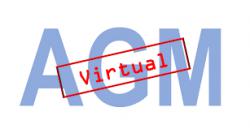
The Companies (Miscellaneous Provisions) (Covid-19) Act came into being during the Pandemic when restrictions on travel within Ireland, flights into Ireland and inability to attend public gatherings led to fairly substantial practical problems for many companies. The implementation of the Act resolved some of those problems not least being the ability for a company to convene its Annual General Meeting virtually.
In December 2022 the Government announced the extension of some parts of the Act to the end of this year (31.12.2023). In particular, certain company meetings (including Annual General Meetings) can still be held virtually. This will be welcome news to many companies who prefer this format although there is nothing to stop a company holding a physical meeting if they wish to do so.
More Detail...







